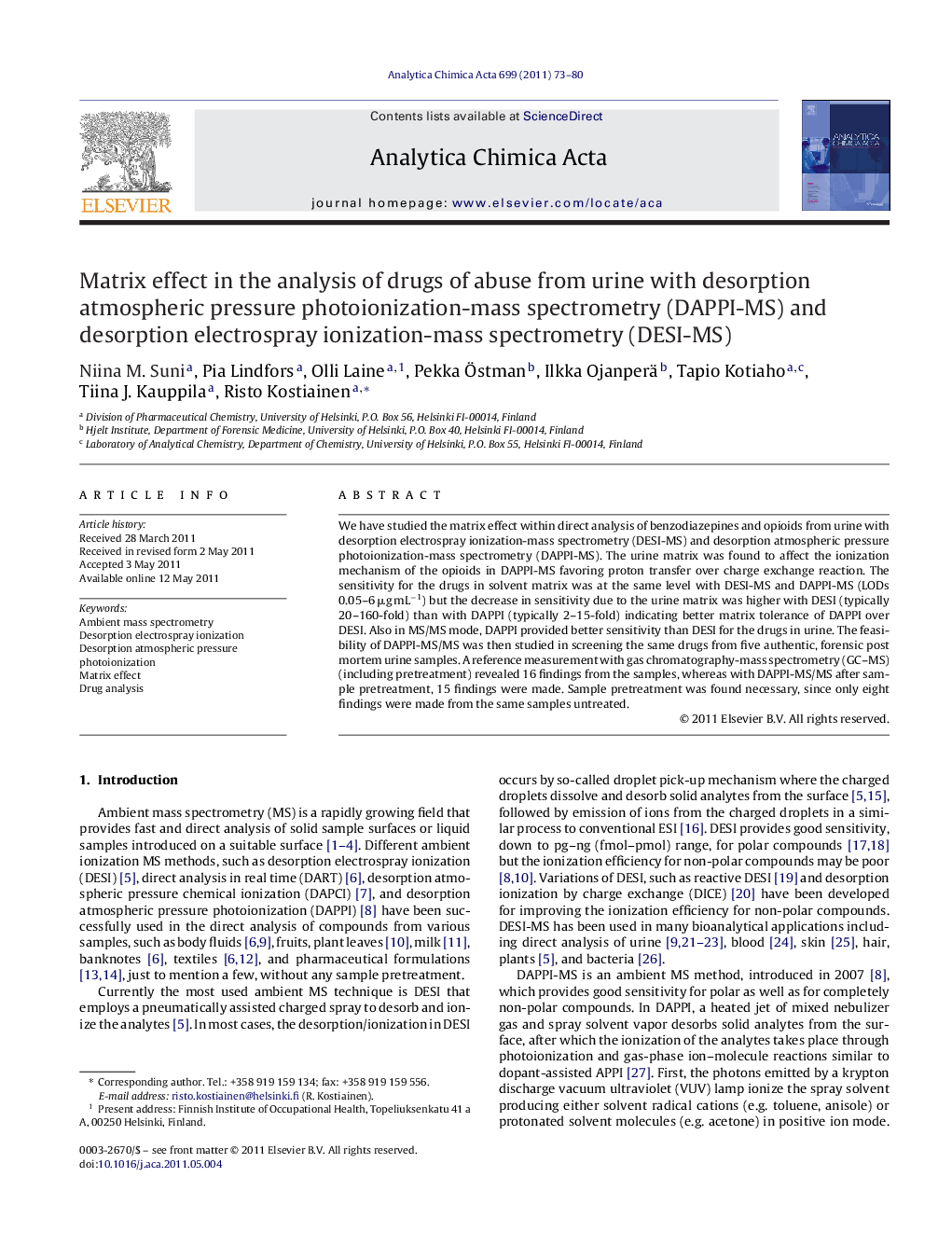| Article ID | Journal | Published Year | Pages | File Type |
|---|---|---|---|---|
| 1166852 | Analytica Chimica Acta | 2011 | 8 Pages |
We have studied the matrix effect within direct analysis of benzodiazepines and opioids from urine with desorption electrospray ionization-mass spectrometry (DESI-MS) and desorption atmospheric pressure photoionization-mass spectrometry (DAPPI-MS). The urine matrix was found to affect the ionization mechanism of the opioids in DAPPI-MS favoring proton transfer over charge exchange reaction. The sensitivity for the drugs in solvent matrix was at the same level with DESI-MS and DAPPI-MS (LODs 0.05–6 μg mL−1) but the decrease in sensitivity due to the urine matrix was higher with DESI (typically 20–160-fold) than with DAPPI (typically 2–15-fold) indicating better matrix tolerance of DAPPI over DESI. Also in MS/MS mode, DAPPI provided better sensitivity than DESI for the drugs in urine. The feasibility of DAPPI-MS/MS was then studied in screening the same drugs from five authentic, forensic post mortem urine samples. A reference measurement with gas chromatography-mass spectrometry (GC–MS) (including pretreatment) revealed 16 findings from the samples, whereas with DAPPI-MS/MS after sample pretreatment, 15 findings were made. Sample pretreatment was found necessary, since only eight findings were made from the same samples untreated.
Graphical abstractFigure optionsDownload full-size imageDownload as PowerPoint slideHighlights► DAPPI-MS and DESI-MSI in the analysis of drugs of abuse from urine. ► DAPPI-MS has better urine matrix tolerance over DESI-MS. ► Urine matrix can affect the ionization mechanism in DAPPI. ► DAPPI-MS/MS can be used for screening of drugs from urine after sample pretreatment.
